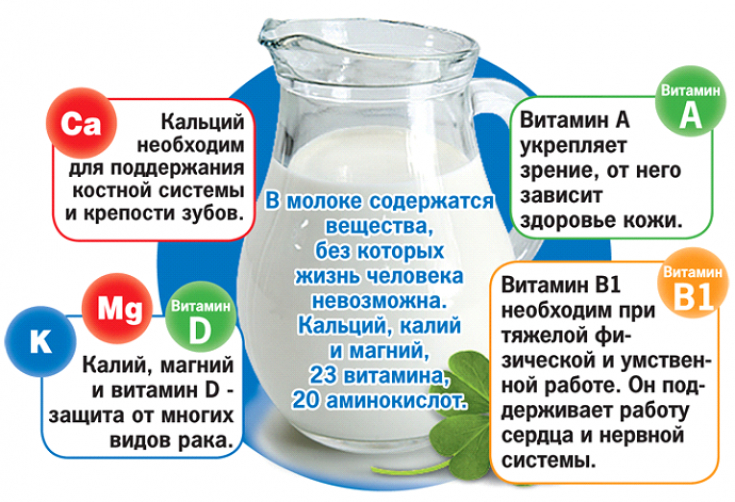Proper nutrition is one of the most important conditions for a healthy lifestyle. Many athletes and nutritionists say that when losing weight, 70% of success comes from proper nutrition, and the remaining 30% from sports.
A healthy diet includes a wide variety of foods. All of them contain certain vitamins and minerals that our body needs. These are fruits, vegetables, meat, poultry, dairy products. But lately, nutritionists have questioned the above, especially when it comes to dairy products.
In the material estet-portal.com we will tell you which dairy products can harm the body.
Which dairy products are good and which are bad
Undoubtedly, there is a positive effect from the use of dairy products. The calcium they contain strengthens hair, nails and bones. This is very important for children and the elderly, whose bones become more fragile with age. Also it is a good product for those who want to lose weight.
Follow us on Instagram
Milk is moderately nutritious, while it does not cause hunger. It also reduces the risk of cardiovascular disease.
When using fermented milk products, digestion is normalized – many have heard about the benefits of kefir for poisoning and constipation. Also this product is good for those who are on a diet.
Top most useful dairy products
But not everything is so easy and simple with milk products. Dairy products can also be harmful. Due to the substances that are oxidizing agents and are contained in milk, part of the calcium goes to neutralize them. In rare cases, calcium that was already in our body can also be used.

When lactose enters our body, it is broken down into glucose and galactose. The first is absorbed and becomes a source of energy, while the second is not excreted and accumulates in the joints. This can lead to arthritis and cellulite.
Also, milk can be dangerous if it comes from infected cows. Therefore, when buying natural milk, try to find out as much as possible about the conditions in which cows are kept.
Cow's milk – far from safe product
Who can't eat dairy
Like any other food, milk can cause intolerance in its natural form. Milk intolerance is expressed in two forms – in the form of lactase deficiency (deficiency of an enzyme for the assimilation of milk) and in the form of an allergy to cow (or goat, sheep and other types) milk protein. These forms of milk intolerance are often found in childhood, although many adults also have this problem.

This may result in an asthma attack, blistering rash, itchy skin, sneezing, runny nose or cough. At the same time, an allergy is also possible to those products in which the protein is not split – cheese, cream, condensed milk, baked milk.
Due to diseases of the digestive system, kidneys, urinary system, metabolic disorders, it is sometimes necessary to limit the consumption of whole milk or dairy products.
In addition, many of the dairy products are quite fatty – this is cottage cheese, butter, many varieties of cheese and fermented baked milk. These dairy products are limited in cases of obesity and weight loss, in diseases of the liver or gallbladder.
Milk should be limited to people over 50. A special substance was found in milk, which contributes to the accumulation of harmful lipids in the body, which provoke the development or progression of atherosclerosis.
There is practically no lactose in kefir, so it practically does not cause allergies and lactase deficiency. However, there are a number of restrictions on the consumption of kefir.
Do adults need "milk": the harm and benefits of milk for women
Even a healthy person should not drink more than 400 ml of kefir per day. In the case of drinking a large amount of kefir, the acidity in the intestinal lumen may sharply increase and the permeability of the walls of blood vessels for red blood cells will increase. This causes microscopic bleeding. If you constantly exceed the average daily intake of kefir, this can result in anemia.
Before you go on a kefir diet, you need to take into account the fact that a large amount of kefir acidifies the blood and heavily burdens the kidneys. It is prohibited in phosphate kidney stones.
There are health and nutritional restrictions on the intake of other dairy products as well.
Cream, sour cream and fermented baked milk should not be consumed by overweight people and when losing weight due to their high fat content. Cheeses should not be consumed by people with ulcers and gastritis, moldy cheeses are prohibited for allergy sufferers, cheese fondue is completely harmful even for a healthy person.
Unleavened cottage cheese should be consumed with care by allergy sufferers, and any kind of cottage cheese should be severely limited in case of kidney diseases.
Yoghurt has practically no contraindications, but only if it is natural without additives.
The disease is much easier to prevent than to treat. Therefore, be sure to consult your doctor and undergo the necessary examinations if you suspect side effects from the use of dairy products.
Milk is a heavy choice for a light product






Add a comment